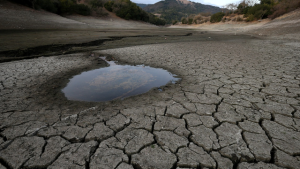FRESNO, CA (KMJ) – A groundbreaking new report released Monday afternoon spells out the economic disaster for farmers in the Central Valley and statewide as a result of California’s water policies.
The report done by University of California, Berkeley, economists Dr. David Sunding and Dr. David Roland-Holst shows that the California economy will suffer unless responsible, balanced water reforms are enacted in the effort to achieve groundwater sustainability goals in the San Joaquin Valley.
Assemblyman Jim Patterson’s Office released the data:
PERMANENT ECONOMIC IMPACTS UNCOVERED IN THE REPORT INCLUDE:
- Unemployment in some disadvantaged communities will more than double.
- Up to 1 million acres of productive farmland will be permanently fallowed in the San Joaquin Valley, representing one-fifth of all acres under cultivation in the Valley.
- The annual farm revenue loss associated with this fallowing is $7.2 billion per year, or roughly 14 percent of California’s total farm production.
- Counting indirect and induced job losses together with direct losses, California stands to permanently lose as many as 85,000 full-time jobs and $2.1 billion in employee wages across California. These losses will reach further into the economy as newly unemployed workers have less income to spend on household purchases.
- Tax revenue for local and state government is expected to drop by approximately $535 million per year, based on $242 million in lost city and county tax revenue and $293 million in lost tax revenue at the state level.
- Despite a demonstrated statewide impact, the areas most impacted by job losses are the state’s most underserved communities already suffering from the lack of quality drinking water.
The report was supported by the “Water Blueprint for the San Joaquin Valley”, a broad coalition of local governments, academic institutions, water users, and others working toward achieving balanced solutions that limit economic, community, and environmental impacts.
The group recognizes the need for cooperation between water stakeholders, including environmental groups and disadvantaged community groups, to develop and advance thoughtful solutions.
Click to listen a report by KMJ’s Liz Kern:







